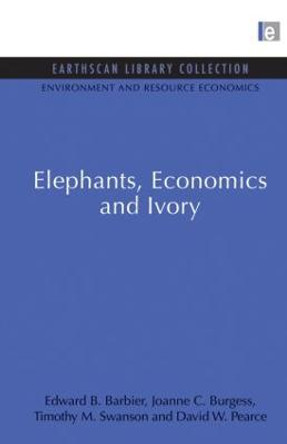Why is natural resource exploitation not yielding greater benefits for the poor economies? In this second edition of his landmark book, Barbier explores this paradox in three parts. Part I gives a historical review of resource use and development, examining current theories that explain the under-performance of today's resource-abundant economies, and proposing a hypothesis of frontier expansion as an alternative explanation. Part II develops models to analyse the key economic factors underlying land expansion and water use in developing countries. Part III explores further the structural pattern of resource dependency, rural poverty and resource degradation within developing countries, and through illustrative country case studies, proposes policy and institutional reforms necessary for successful resource-based development. First published in 2005, each chapter in this new edition has been thoroughly revised and updated, with new material, tables, figures and supporting empirical evidence. It will appeal to graduate students and scholars researching environmental and developmental economics.
The second edition of this landmark book explores how natural resources contribute to development in poor economies.About the AuthorEdward B. Barbier is a Professor in the Department of Economics and a Senior Scholar in the School of Global Environmental Sustainability at Colorado State University. A highly cited author and a leading global expert on international environmental policy, he is also a Fellow of the Association of Environmental and Resource Economics.
Book InformationISBN 9781107179264
Author Edward B. BarbierFormat Hardback
Page Count 458
Imprint Cambridge University PressPublisher Cambridge University Press
Weight(grams) 760g
Dimensions(mm) 235mm * 157mm * 27mm








